From the creators of 3-D Worldrunner
As any lifelong fan of Final Fantasy could tell you, the series has experienced its fair share of ups and downs this last decade. It’s a beloved RPG staple not unfamiliar with the low lows and high highs that come with such a lengthy history in the spotlight.
Between Final Fantasy XV‘s tumultuous development cycle, Final Fantasy XIV’s abysmal launch state turned golden child, and whatever mobile game has lived and died in just a few years, fan opinion of the brand has undoubtedly grown more divisive. Regardless, it set the standard for RPGs across multiple consoles with cutting edge aesthetics and gameplay systems that became industry staples. That’s not to say ‘oh, every new Final Fantasy is bad,’ that’s rubbish. But it’s important that the heights of the franchise are not forgotten. This is a series whose legacy will endure forever, no matter how many stupid NFTs Square Enix tries to sell.
Like all Top 10s, ranking Final Fantasy games is a tough job. Every game on this list is someone’s favorite, which is a testament to how solid the peaks of this series really are. For ground rules, I’m keeping it simple: If a game has Final Fantasy in the title, it counts. The only exceptions are spinoff series that temporarily adopted the brand name before forming their own identities (so no Mana or SaGa games). With that out of the way, join me as we determine which entry is truly the Final Fantasy.
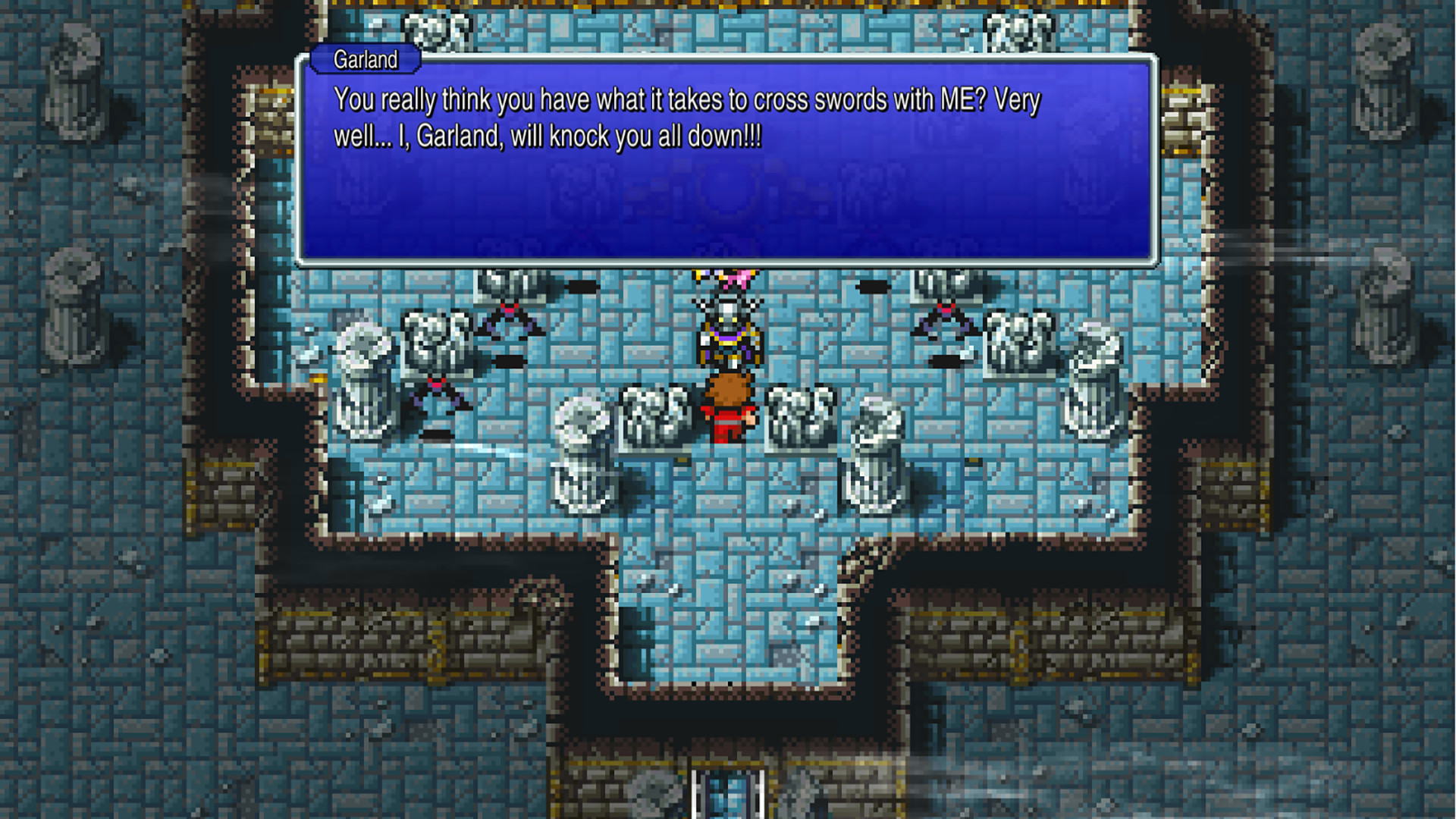
12: Final Fantasy I (1990)
I can’t help it, I love this janky game. While some consider Final Fantasy III to be the better NES title, Final Fantasy I is so charming and basic that I find myself replaying it every few years. It’s right up there with Dragon Quest as a palette cleanser to fit between complex games with nuanced game systems. It’s not a great way to get into the series nowadays, but every RPG fan should get knocked down by Garland at least once.
The real question is this: which version should you play? I’m partial to the Final Fantasy Origins version which retains the original MP system and fixes the odd mechanics of the original. The recent Pixel Remaster is also probably fine, I’d play it if Square Enix remembered how to sell video games.
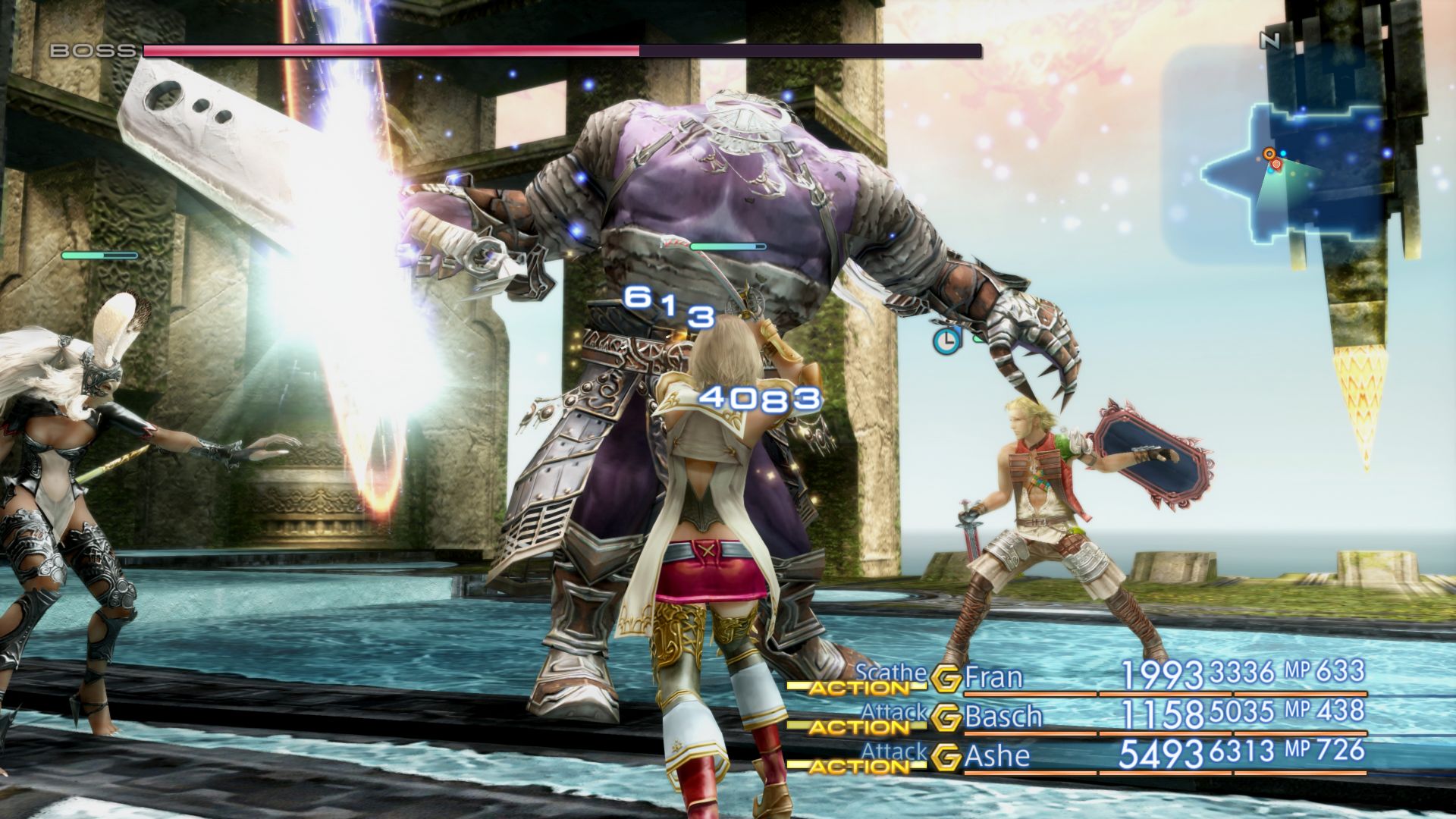
11: Final Fantasy XII (2006)
I wouldn’t say Final Fantasy XII is a divisive game, but I’d argue it has the greatest variance of opinion. Some say it’s a top 3 Final Fantasy, others say it’s a boring slog. For me, even being uncharitable, the ingenuity of the Gambit system makes Final Fantasy XII interesting and innovative enough to recommend. In many ways, I’d say Final Fantasy XII feels better now than it did at launch. The Zodiac Age adds some fantastic quality of life to the game, and the narrative is bolstered by the continued worldbuilding of Ivalice in Final Fantasy XIV.
I’d highly recommend Final Fantasy XII for people who like MMORPGs but don’t like the massively multiplayer part.
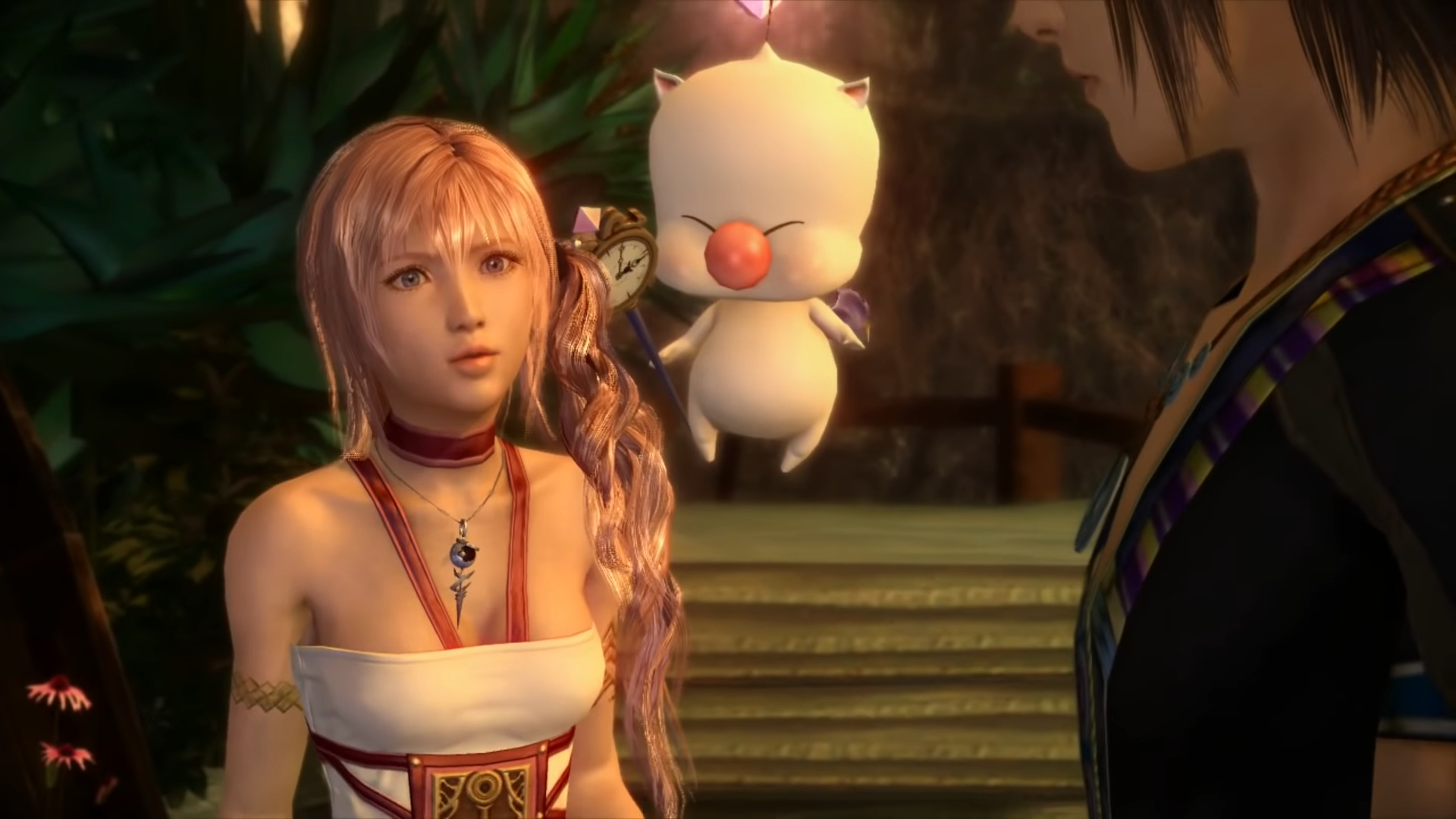
10: Final Fantasy XIII-2 (2011)
The Final Fantasy XIII sequel may not include as much of our beloved Fang and Vanille as the first does, but it’s still a solid picture of the original’s vibrant designs and stunning music. Final Fantasy XIII-2 is among the series’ outliers as a part two, but the battle system improvements, world design, and villain easily outpace its predecessor. While in the camp of folks who maintain there is no ‘bad’ Final Fantasy really, just a lot of good games competing for ‘best’, it’s still a shame to see this one go unnoticed after some fans soured with FFXIII.
That said, at least try it for the story. FFXIII-2 isn’t the first on this list to ask, “What kind of hell would you raise if the person you love most died?” But it certainly does it the best.
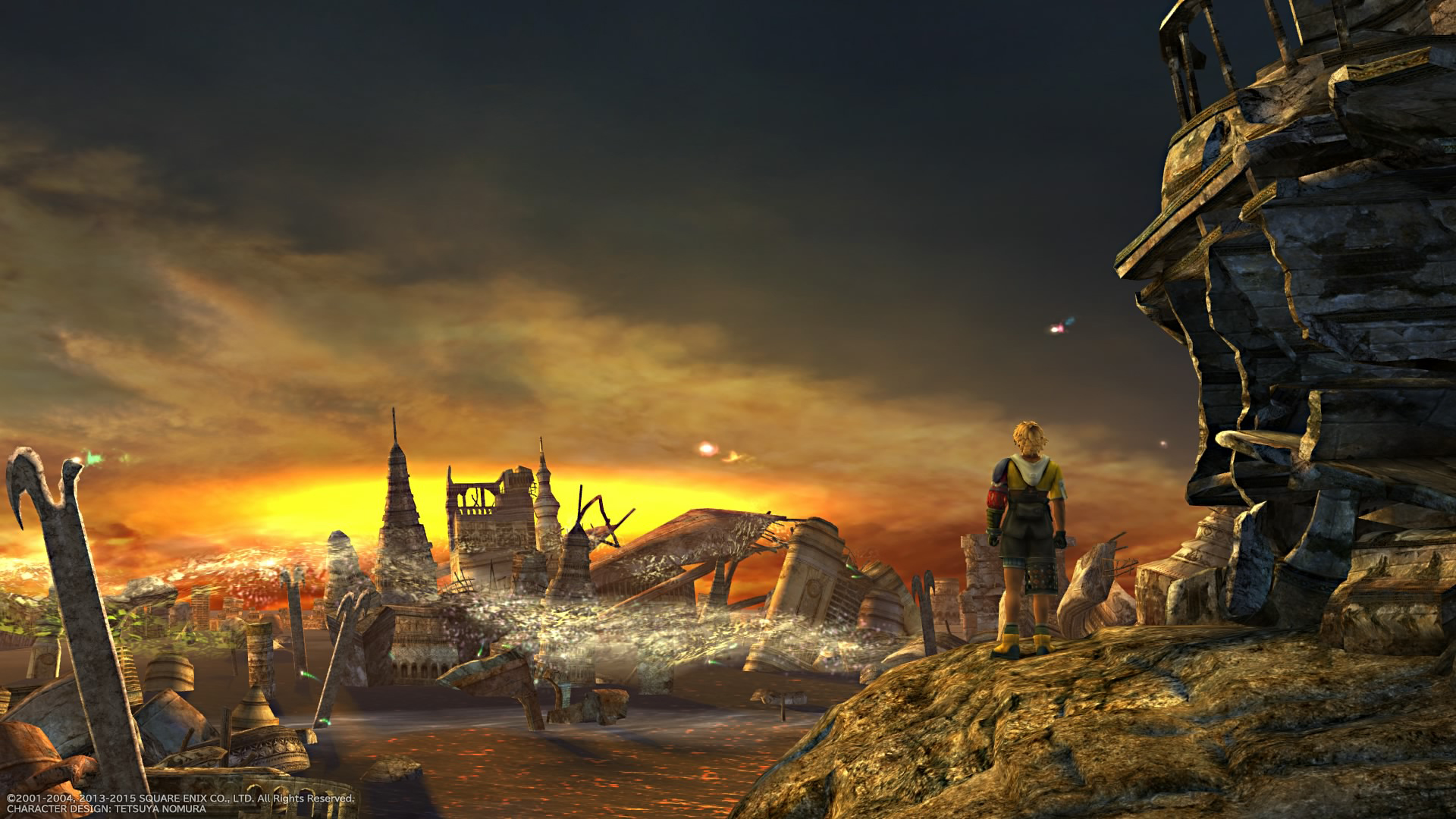
9: Final Fantasy X (2001)
Final Fantasy X is a fascinating checkpoint for the series. You can see the roots that future games would follow here, yet at the same time, Final Fantasy X retains the (mostly) endearing characters and innovative gameplay ideas of the classic games. The Charge Battle System is fantastic, I never get tired of manipulating turn orders while dealing devastating damage. Also, Nobuo Uematsu may not have sole claim to the soundtrack, but his contributions make the game’s dramatic moments hit as hard as they can.
Additionally, yes, Tidus’ dumb laugh was done that way on purpose and I will go to bat defending it if it comes up.
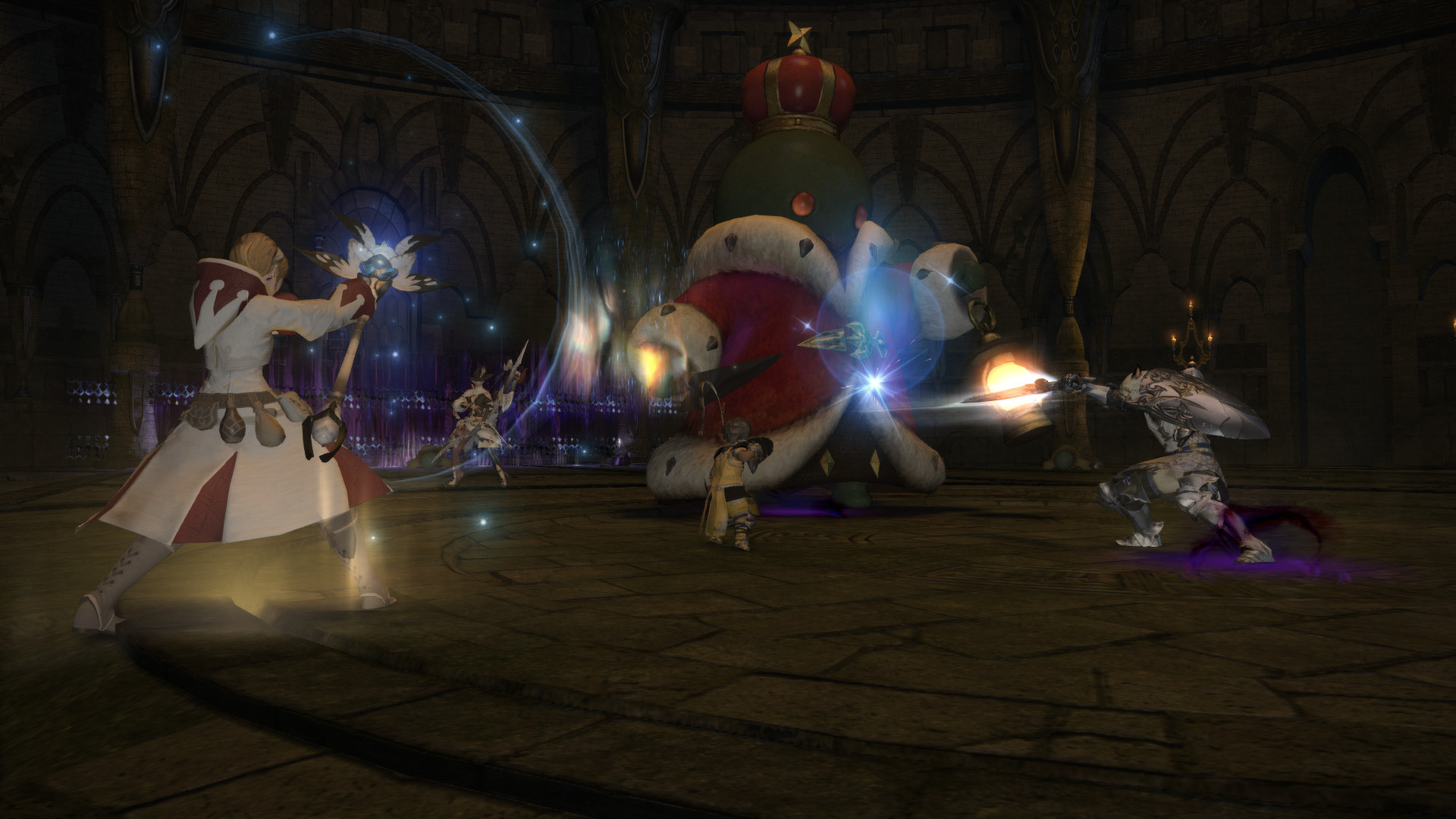
8: Final Fantasy XIV (2013)
Of all the entries on this list, this was the most agonizing to rank. I have spent more hours in Final Fantasy XIV than any other video game, and it’s not even close. From A Realm Reborn to Endwalker, this is, without a doubt, one of the greatest narratives in video game history. I love this game dearly, yet ranking an MMORPG against single player RPGs is like ranking french fries and trying to fit in a potato field. How do you compare something so fundamentally different than the rest of the series?
After much deliberation, I arrived at this compromise: if you are new to the Final Fantasy series, play the subsequent games on this list first. If you strictly compare the single player experiences, you’ll get more concise games with more entertainment per minute compared to Final Fantasy XIV’s slow burn main scenario. You’ll not only understand why so many people love this series, you’ll also get most of the references Final Fantasy XIV makes to the franchise’s history. With this background, you’ll be primed to thoroughly enjoy Final Fantasy XIV. That said, if you’re just looking for a great MMORPG, go ahead and jump straight into Final Fantasy XIV.
By the way, did you hear Final Fantasy XIV has a free trial up to level 60? It’s gaming’s best kept secret.
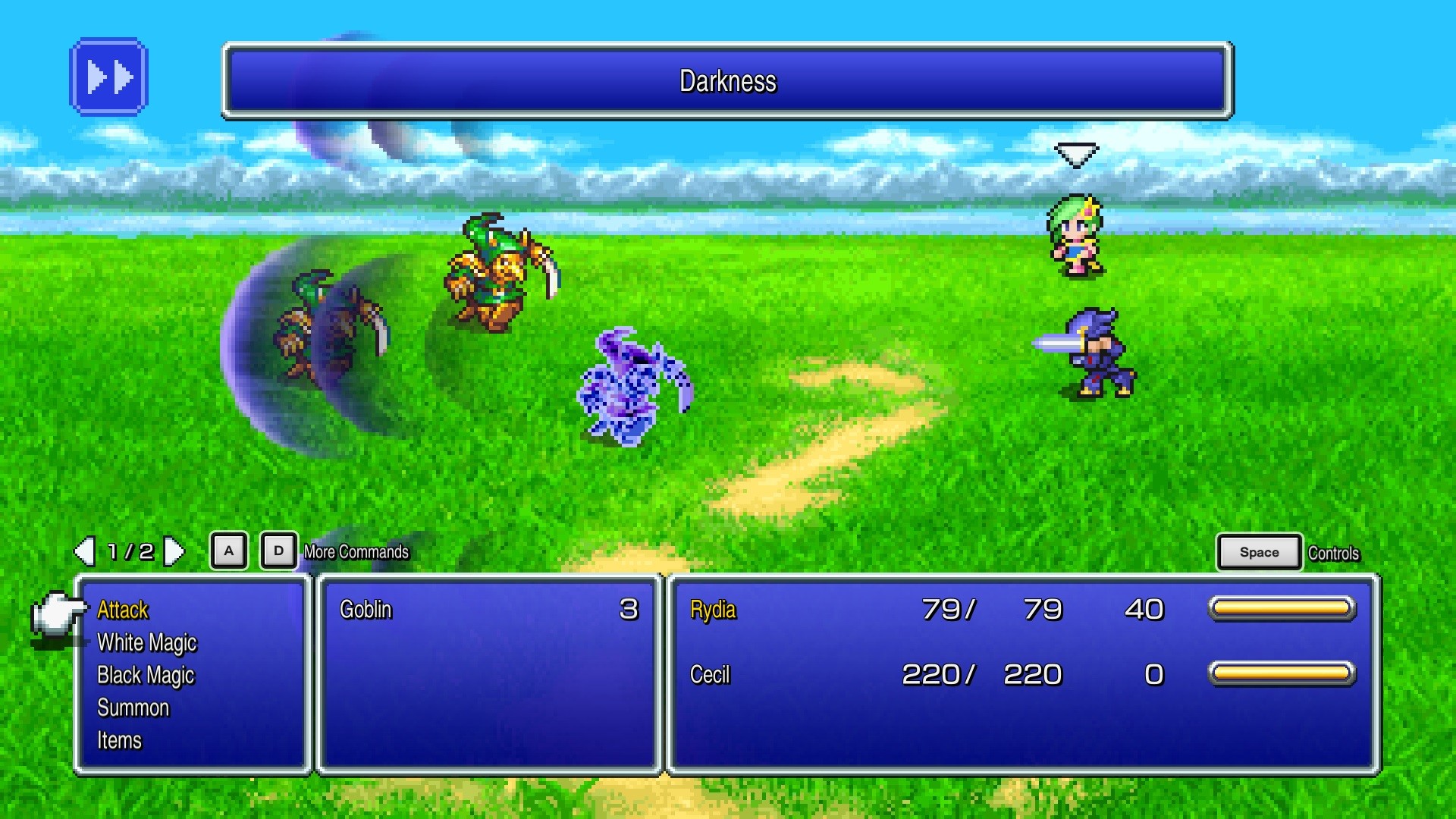
7: Final Fantasy IV (1991)
Final Fantasy IV is the foundation of the JRPG genre as we know it. Cecil’s story of redemption is timeless, and even the SNES version has rock-solid gameplay that holds up today. It’s impeccably approachable and establishes so many classic JRPG tropes that I’d honestly recommend someone who’s getting into the genre to start here.
This is right up there with Final Fantasy I as a palette cleanser for me, except Final Fantasy IV has more characters that turn into beards upon death.
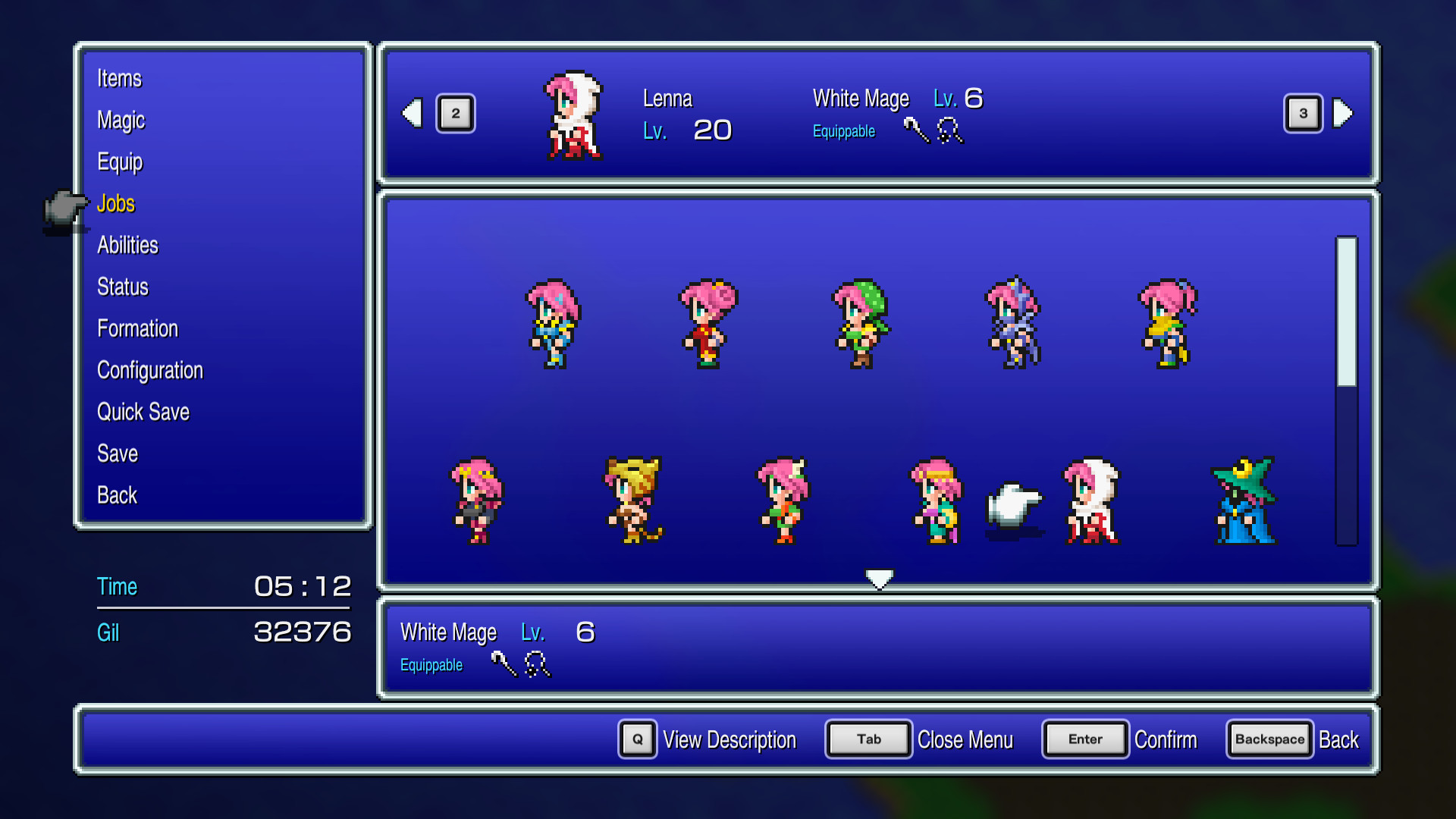
6: Final Fantasy V (1992)
Final Fantasy V didn’t invent the series’ iconic job system, but man did it define it. It’s so fun, so satisfying, and so customizable that it formed the backbone of the entire Bravely Default series. Heck, even the existence of the Four Job Fiesta proves how infinitely replayable Final Fantasy V is. While games like Bravely Default do expand upon the core gameplay here, Final Fantasy V is well worth playing for its unique combination of depth and accessibility.
Also, the main character’s Japanese name is Butz. If you say you don’t like Final Fantasy V, you’re saying you don’t like Butz.
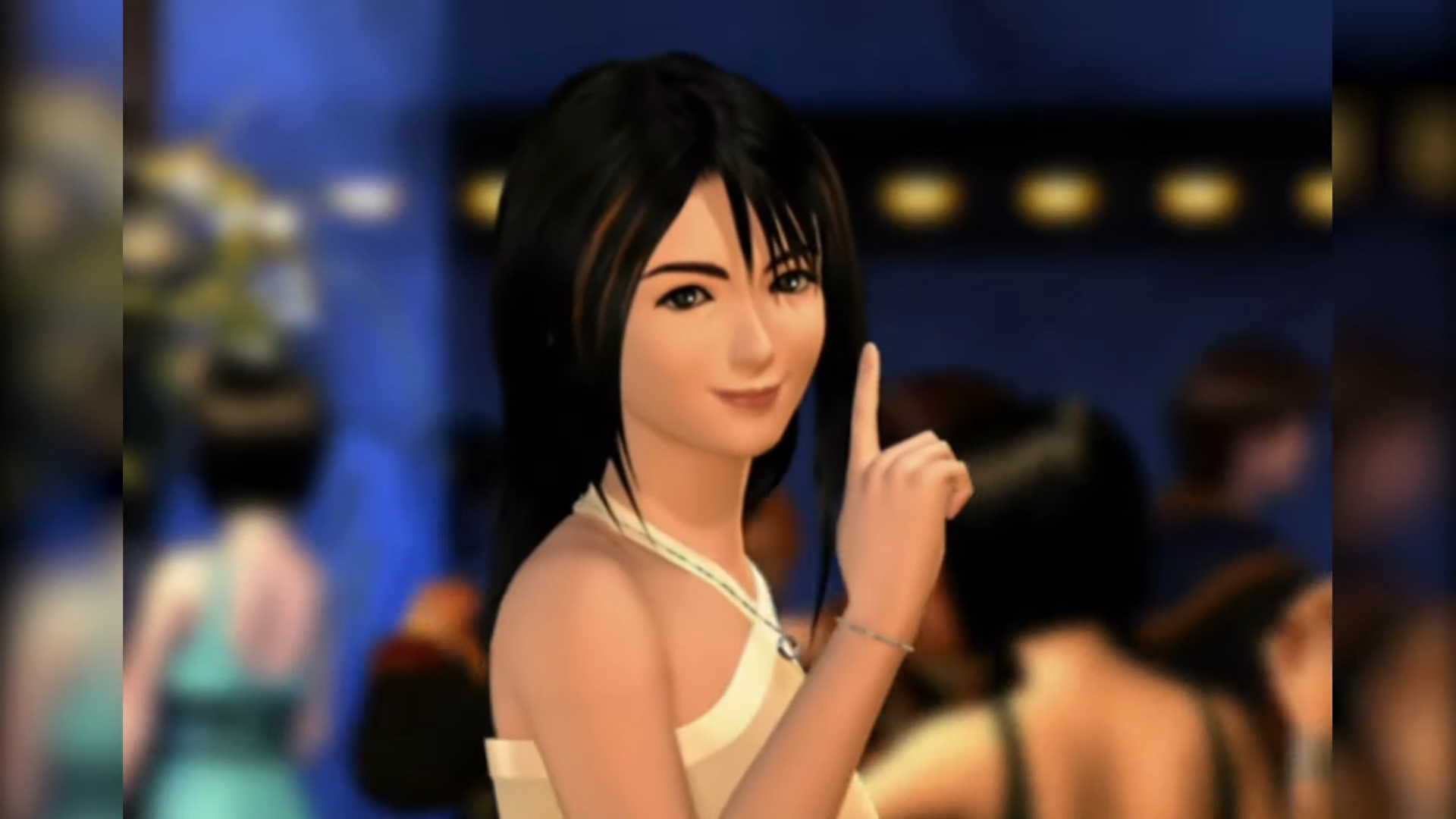
5: Final Fantasy VIII (1999)
Look, this isn’t here to spur a fight — though ranking this series certainly feels a bit that way, even amongst the best of friends — but hear me out. Final Fantasy VIII is good stuff, great, even. It married some of the series’ most outlandish, in-universe technological jumps (see FFIV’s journey to the moon and the almost cyberpunk aesthetic of FFVII) to classic fantasy setups, all while remaining perfectly serious and goofy. Which is, undoubtedly, the hardest balance to strike. No one is here advocating for its spot because you can break FFVIII’s battle system out the gate, but the game still impresses in other ways more than 20 years later.
It was one of our earliest examples of gameplay-to-cutscene transitions done right, with some instances of regular 3D models for Squall and the gang flying over fancy animated battlegrounds straight into battle. Then there’s that timelessly charming push-and-pull between Squall and Rinoa, even familiar to folks who haven’t played just by the ballroom dance scene. Anyway, regardless of agree or disagree, we can all find common ground over Triple Triad, at least.
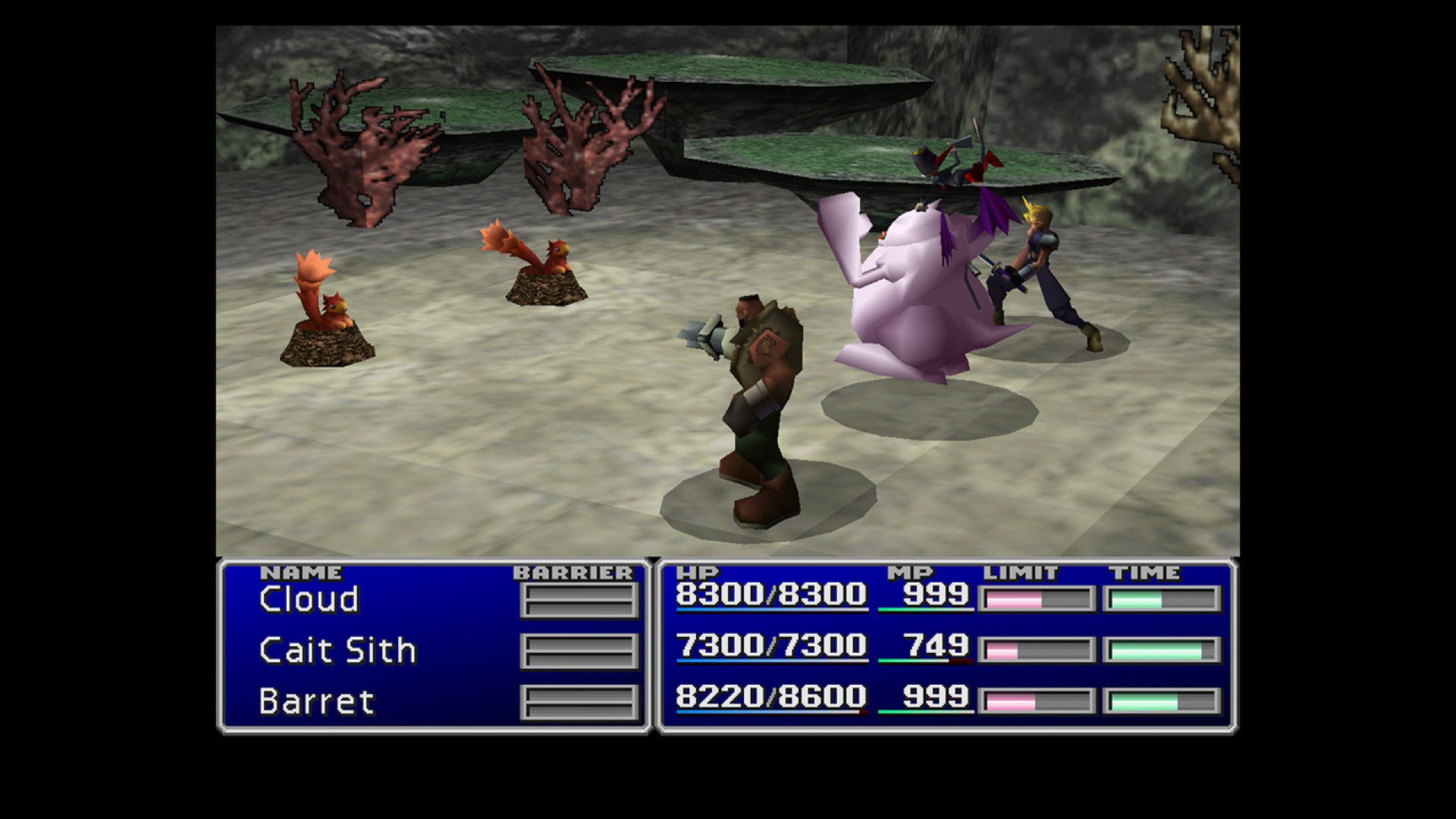
4: Final Fantasy VII (1997)
Despite my diatribe on Final Fantasy XIV, I imagine this will be the most hotly contested ranking on this list. Final Fantasy VII single-handedly changed the JRPG genre, and whether that was good or bad is up to you. I can confidently say that, despite the oversaturation of Final Fantasy VII media, the original game is a classic. Its subversive story subtly manipulates your agency and results in incredible moments that culminate in gaming’s most famous spoiler. Also, Final Fantasy VII both appeals to genre newbies while providing customization to personalize each playthrough. Whether you love Final Fantasy VII or not, it’s easy to understand why this became the multimedia empire it is today.
Talking about the great music in a Final Fantasy game is kind of a “duh” point to make, but I do want to go on record that the main theme of Final Fantasy VII is an absolute contender for Uematsu’s best work. It’s such an emotive, complex piece that adds so much scale to the world and your journey in it. Many will say Final Fantasy VII is overhyped, but in the case of this track alone, I’d say it deserves all the credit it gets.
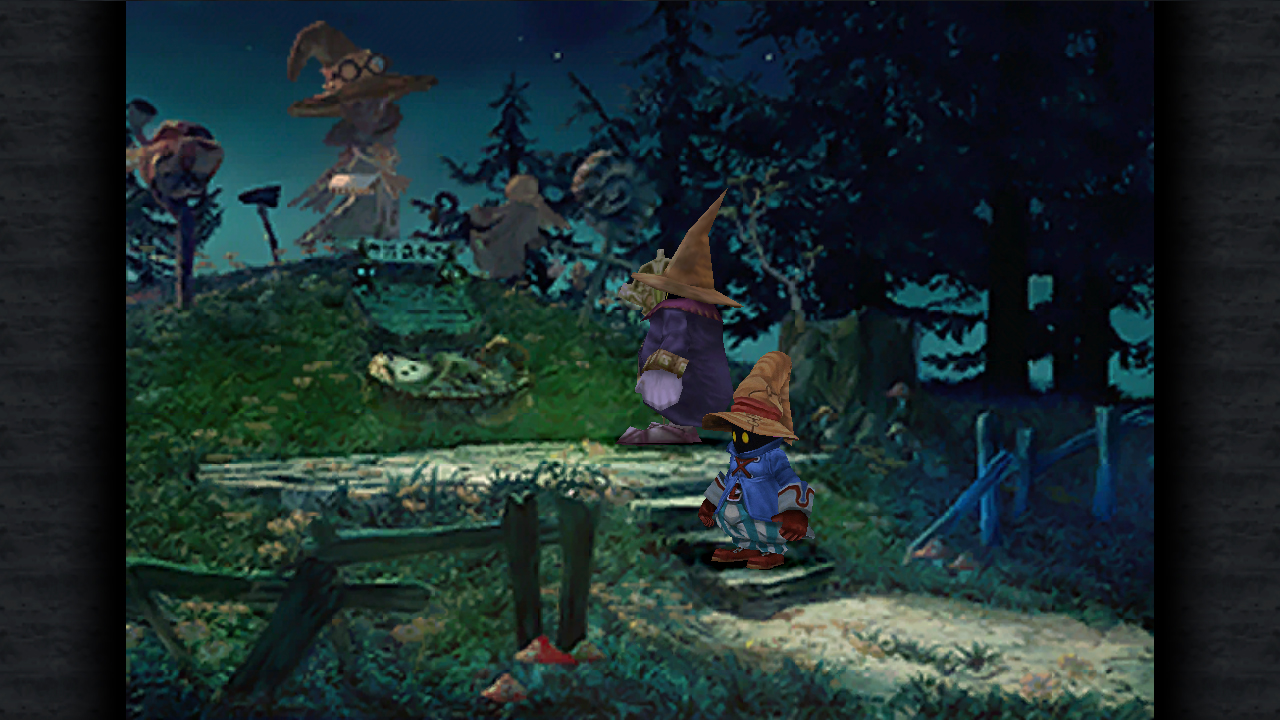
3: Final Fantasy IX (2000)
Final Fantasy IX is consistently called an homage to the SNES era. That said, it’s one of the most distinct worlds in the series’ history. The cast of Final Fantasy IX is vibrant, filled with so much personality from the earliest moments in the game. Conversely, the charming moments of levity in Final Fantasy IX make the dramatic beats of the plot hit so hard. If you meet someone that has played Final Fantasy IX and has no strong opinions about Vivi, you may actually be conversing with a creature from the underworld.
Final Fantasy IX was the last Final Fantasy Sakaguchi personally wrote, and it’s a perfect sendoff to his legacy. It’s the charm of his classic titles with the PlayStation era’s innovations, culminating in a classic that everyone should play.
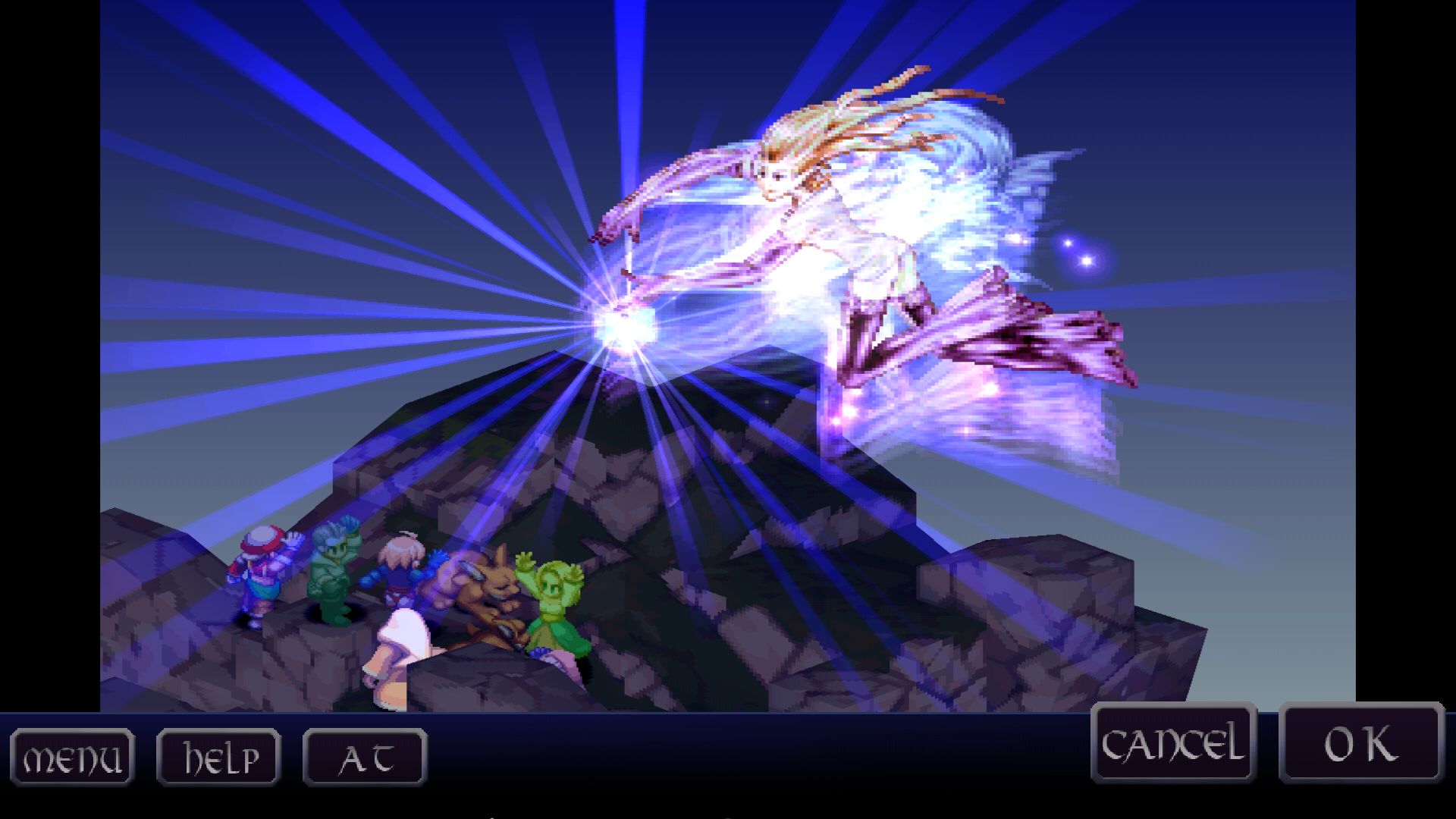
2: Final Fantasy Tactics (1998)
I’d typically address the subversiveness of ranking a spinoff so highly, but rarely are spinoffs as phenomenal as Final Fantasy Tactics. The narrative is a masterclass drama that only Yasumi Matsuno can deliver. The class warfare and nuanced characters are so deep here that people still debate if Delita is a villain. That alone could cement Tactics’ place on this list, but remember that slam dunk job system from Final Fantasy V? Now throw that in a tactical combat system with even richer customization and you have an entertaining and replayable game that practically never gets old across several playthroughs.
The subsequent Final Fantasy Tactics games have their own charm, and I won’t deny that they’re quality titles as well. Yet there is no question in my mind that the original Final Fantasy Tactics belongs alongside the series’ greatest entries.
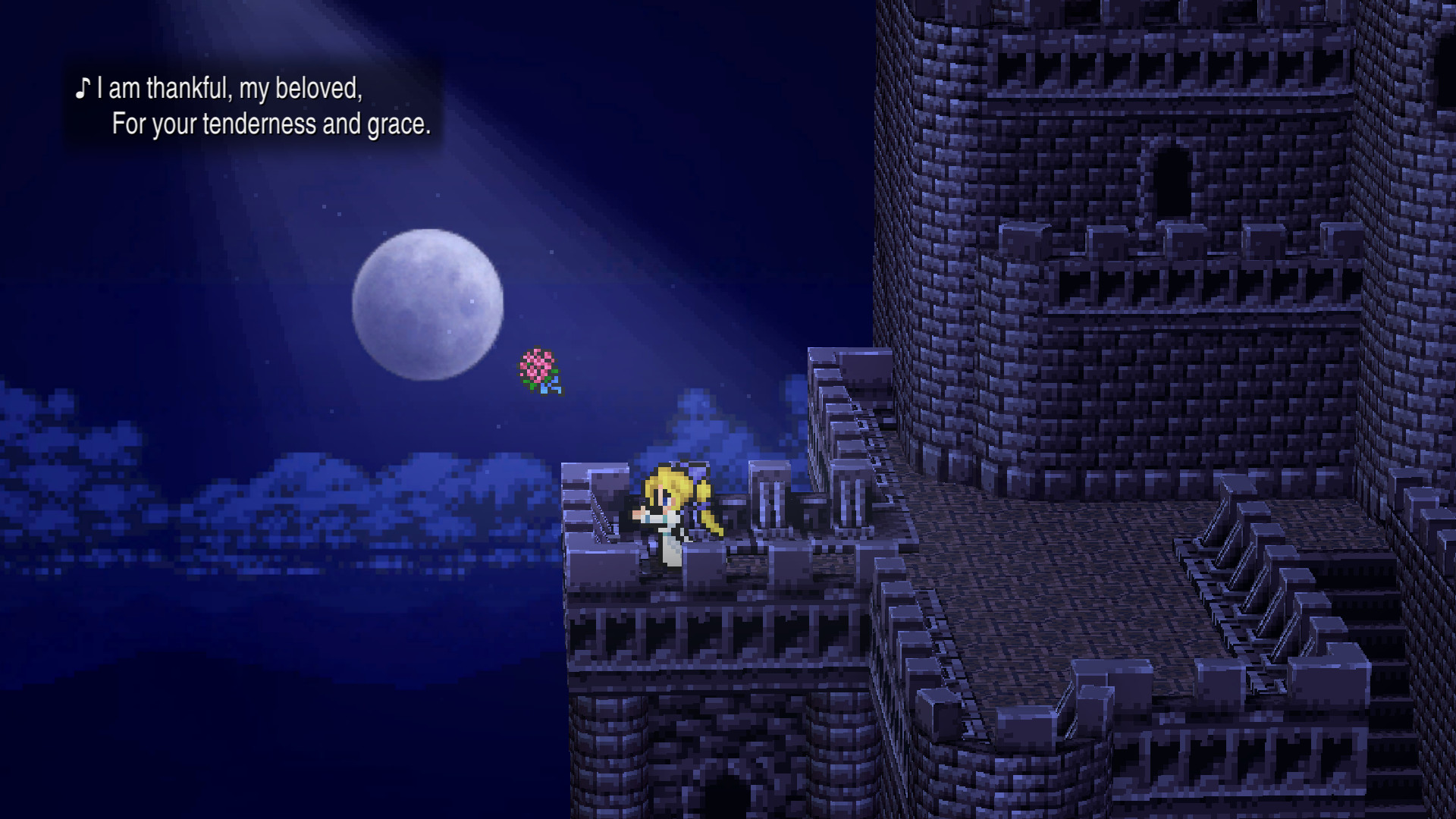
1: Final Fantasy VI (1994)
I want to discuss a moment in Final Fantasy VI that continues to stick with me. After a famous twist in the midgame, the game focuses on Celes stuck on an island. Though she’s had ample screen time, Celes hasn’t been framed as a main character until now. Your objective is to catch fish and save your last friend in the world.
Played blind, most will fail this task. This triggers a heart-wrenching scene where Celes decides life is no longer worth living. Watching Celes endure this is painful since her past sins already weigh on her. Meanwhile, you are sharing this experience of failure with her. There’s a palpable feeling that you’ve done something irredeemable, tempting you to hit the reset button.
Except this doesn’t trigger a bad ending. Celes survives and gains a glimmer of hope that her friends still live, and she chooses to persevere until she finds them. Final Fantasy often iterates on hope in hopeless circumstances. Yet Final Fantasy VI drives this theme home by giving this hope to a character that resonates with feeling worthless amid utter despair. Contrary to what you or Celes felt in that darkness, that spark is all it takes to change the world. Everyone is important. No matter how small our role, we are valuable and deserving of love.
Final Fantasy VI is a reminder that these games excelled by striking the core of our humanity. They told meaningful, unforgettable stories where even the smallest person could be a hero. Final Fantasy VI is a classic with incredible set pieces, unforgettable moments, and arguably gaming’s greatest final boss theme. Also, there’s a funny octopus who tries to ruin an opera by dropping an anvil. An absolute masterpiece from start to finish.





Published: Mar 5, 2024 07:35 pm